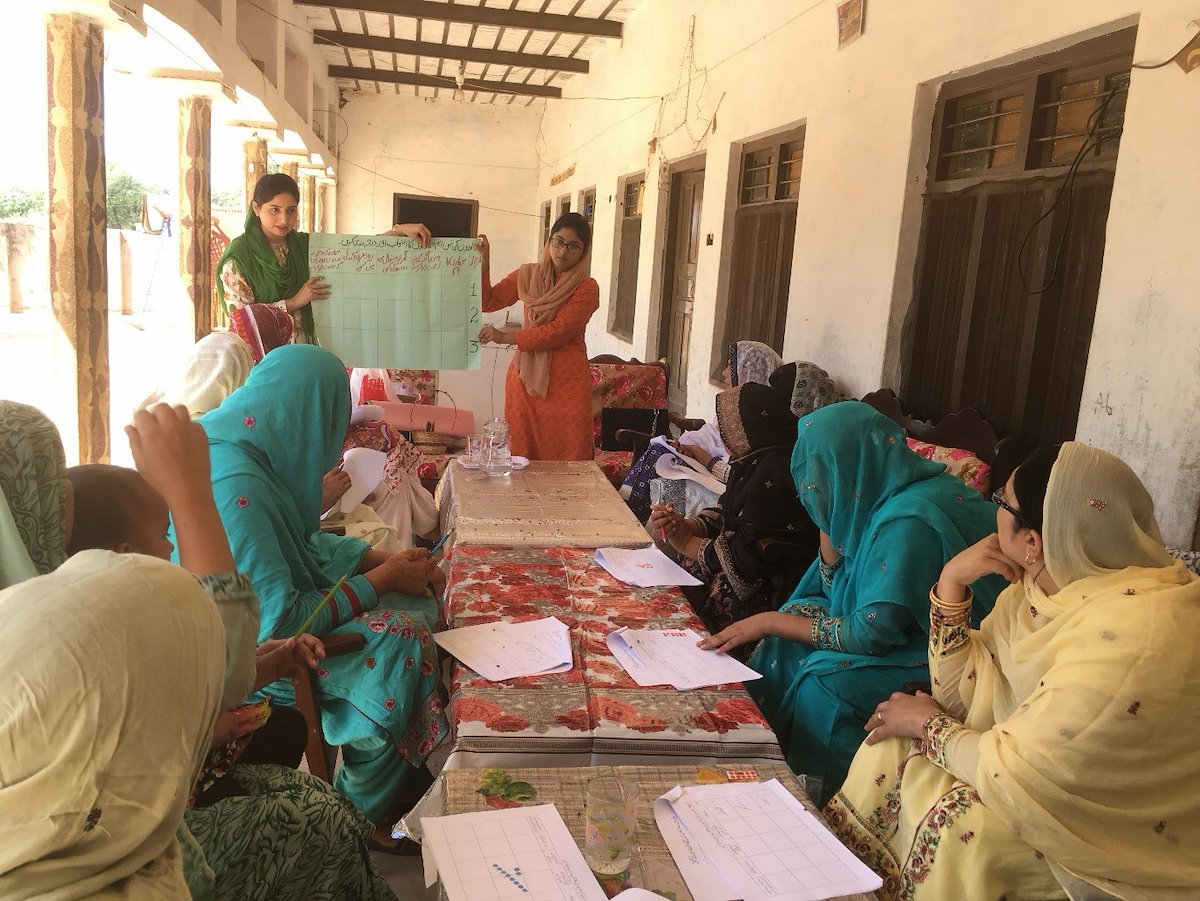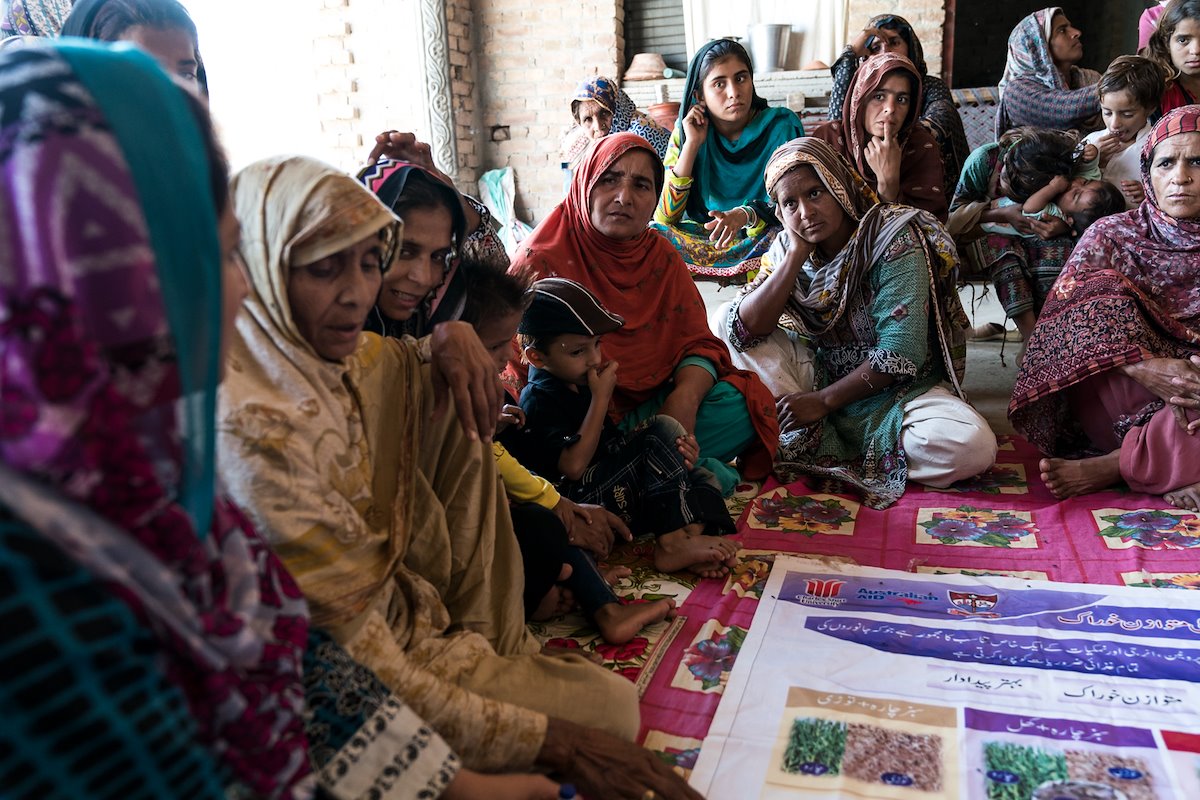- HomeHome
-
About ACIAR
- Our work
- Our people
-
Corporate information
- ACIAR Audit Committee
- Commission for International Agricultural Research
- Policy Advisory Council
- Agency reviews
- Executive remuneration disclosure
- Freedom of information (FOI)
- Gifts and benefits register
- Information publication scheme
- List of new agency files
- Contracts
- Legal services expenditure
- Privacy impact assessment register
- Commonwealth Child Safe Framework
- Benefits to Australia
- Careers
- 40 years of ACIAR
-
What we do
- Programs
- Cross-cutting areas
- Resources
- Where we work
-
Funding
- Research projects
- Fellowships
-
Scholarships
- John Allwright FellowshipScholarships to study in Australia for ACIAR partner country scientists to have Australian postgraduate qualifications
- ACIAR Pacific Agriculture Scholarships and Support and Climate Resilience Program
- Alumni Research Support Facility
- Publications
- News and Outreach
Date released
16 April 2019
Two Pakistani agricultural researchers will participate in the year-long Homeward Bound program, which culminates in a three-week sea voyage to Antarctica. Dr Shumaila Arif and Humera Iqbal are working with smallholder farmers, seeking especially to empower women smallholders.
Dr Shumaila Arif says she owes a huge debt of gratitude to her parents, especially her father. Her parents’ belief in the value of higher education for girls often ran counter to traditional values in Pakistan, but their support enabled her to continue her education beyond the normal high school level to complete a bachelor’s degree in veterinary medicine. ‘I am the first girl on my father’s side of the family who has been educated, and I feel very blessed.’
That family support continued with encouragement to undertake a PhD, made possible through an ACIAR John Allwright Fellowship. In November 2018, the School of Animal & Veterinary Sciences at Charles Sturt University awarded her PhD, ‘Epidemiology of brucellosis in smallholder farming systems in Pakistan’.
Her research focused on Pakistani dairy farmers and the zoonotic aspects of brucellosis, a bacterial disease of livestock. In humans, it can cause recurring flu-like symptoms—fatigue, joint pain, fever and weight loss—and, in women, it can also lead to spontaneous abortions, foetal death and low birth weights of children.
Dr Arif says very little work had been done on brucellosis in smallholder dairy farms, which represent 90% of dairy production in Pakistan—ranked fourth in the world in terms of dairy production. She researched over 400 dairy farming families in seven districts across Pakistan to establish the prevalence of the disease in their livestock. She also surveyed them to undertake a risk analysis of dairy farming practices such as calving procedures, handwashing, dung management and vaccination. ‘We collected 1200 blood samples,’ she says, ‘but that was a real challenge. They had no crush; it took us two hours to get a sample from one animal.’
Dr Arif’s research looked at three commonly used bovine brucellosis diagnostic tests, and found that two, when applied in parallel, yielded the best results for Pakistani field conditions. Her research also identified regions with high, medium and low disease-prevalence. She also found that the vast majority of smallholder famers (97%) were not aware of how brucellosis spread, and many engaged in risky practices as a consequence. The majority (66%) of the farmers’ families, for example, reported they consumed raw milk and its by-products, lived in shared housing with animals (49%) and did not cover hand cuts during contact with animals (74%).
The challenges and opportunities continue for Dr Arif and her colleague, animal nutritionist, Humera Iqbal, in 2019. They are two of 95 women selected for the fourth year-long Homeward Bound program. The program takes women with a background in science, technology, engineering, mathematics or medicine (STEMM) from around the world, at various ages and career stages, to give them an immersive networking and leadership opportunity.
The program concludes with a three-week cruise around Antarctica in December. The choice of Antarctica is symbolic. For much of the history of exploration of the continent, women were excluded. In 1937, all 1300 women who applied to go on the British Antarctic expedition were rejected; it was not until the 1950s that women scientists were allowed access to research the frozen continent. The ongoing intention of Homeward Bound is to develop a 1000-strong network of women with STEMM backgrounds who can support each other in creating change.
Dr Arif and Humera Iqbal are being sponsored by ACIAR as part of its ongoing focus on gender empowerment. They were encouraged to apply for the program by Dr Rebecca Doyle, who is working with them on an ACIAR smallholder program in Pakistan, ‘Smallholder goat value chains in Pakistan: challenges and research opportunities’. This scoping project is describing goat and sheep production systems to identify constraints and opportunities throughout the value chain in the Pakistani provinces of Punjab and Sindh. There are some 66 million goats in the country, mainly kept by smallholder families for both consumption and sale.
Dr Doyle is a senior lecturer and animal welfare specialist at the University of Melbourne. She was one of 78 women who participated in the Homeward Bound program in 2017, and undertook the four-week trip to Antarctica in early 2018. She applied because she had been looking for a suitable leadership program for some time, and was drawn to Homeward Bound because of its focus on women in science. ‘I gained enormously from the experience. I found the 360-degree feedback, and the work we did on visibility, very valuable. Women tend to have a much more collaborative approach, and emphasise the importance of the team in any achievement.’ That can mean they do not receive recognition for the work they do, she says. ‘It’s important to be visible.’
On the University of Melbourne’s online publication Pursuit, Dr Doyle said, ‘As a scientist, I’ve always valued the concept of crossdisciplinary collaboration and research, and Homeward Bound really builds on this, focusing on the value of the collective as a leadership tool. The value of collective leadership and collective science is the biggest and best lesson I learnt from Homeward Bound.’
While she has not felt direct discrimination in academia, Dr Doyle says structural change is needed. At the University of Melbourne, for example, women hold 60% of the junior academic lecturer roles but fewer than 20% of higher-level professorial roles. ‘Women have to work together for structural change.’
Personally, the program has encouraged her to ‘be more reflective—to ask open-ended questions. In academia and science, there’s a tendency to think, “You must know it all, and you must do it all”. That’s dangerous and limiting,’ she says.
‘I hope scientific research becomes more collaborative in the future. Antarctica is a really remote and challenging environment. Everyone was outside of their comfort zone, which is a really powerful way to get people to think about how they can make change. It’s easy in science to get really focused on the details, which leads to independent work, but to have impact and bring about change you need to be open and share—share your ideas, your thoughts, your findings.’
The two Pakistani livestock researchers are looking forward to 12 months of personal and professional learning with the program. For Humera Iqbal, it will be ‘a unique opportunity to explore and become more capable, not being afraid to be more visible, and sharing experiences with a diversity of scientific women’. Dr Arif says she is just starting her career, and wants to learn from other women who have gone through their careers about how they have dealt with gender inequality in their workplaces. ‘In male dominated communities like Pakistan,’ she says, ‘women tend not to take credit, and they have to struggle to express an opinion.’
Dr Deborah O’Connell was a participant in the inaugural Homeward Bound program in 2016. She is a Principal Research Scientist with the CSIRO, and now works in sustainable development, resilience and adaptation. In an interview in March 2016 with the CSIRO’s ECOS eNews, Dr O’Connell said that the Homeward Bound program and voyage appealed for many reasons, but in particular, the opportunity to be in a scientific setting where she wasn’t the ‘marginal’ voice. ‘I was always one of a handful of women working in energy and water and I always felt the lack of diversity, and critical mass.
You never want to be the lone voice of diversity in the room; it’s a hard place to be. That’s what it felt like in those days and is that way much of the time in Australia.’ In that interview, Dr O’Connell expressed similar hopes to Dr Arif and Humera Iqbal for the program’s outcomes. She was attracted to the program because of its inclusion of a broad range of experience levels—not just senior women talking to senior women, but PhD students talking to team leaders, and vice versa. 'There’s a range of people and ages and times in careers and I think we’ll get a lot of strength and learning from that.’
Learn more about the ACIAR-funded Livestock project in Pakistan.





